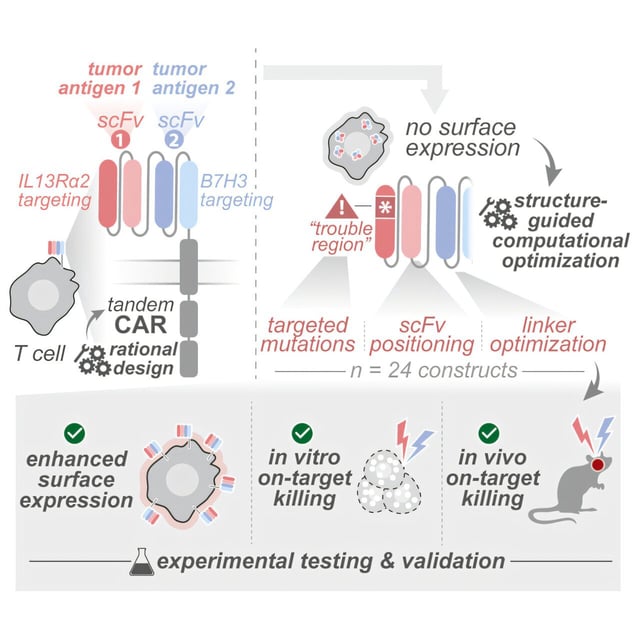Overview
- St. Jude researchers published a Molecular Therapy paper on August 13 detailing an AI-informed pipeline that screens roughly 1,000 tandem CAR constructs in days to predict surface expression and function.
- The optimized bi-specific CAR targeting IL13Rα2 and B7-H3 restored T cell surface expression and fully eradicated tumors in four of five mice bearing heterogeneous tumors.
- The algorithm ranks designs using structural and biophysical fitness scores to identify and refine constructs that overcome misfolding and trafficking failures.
- Laboratory tests showed the computationally optimized versions outperformed non-optimized tandem CARs across multiple antigen pairs, demonstrating the method’s generalizability.
- Next steps include extended in vivo safety assessments and progression toward clinical trials, with potential combinations alongside other engineered immunotherapies.
